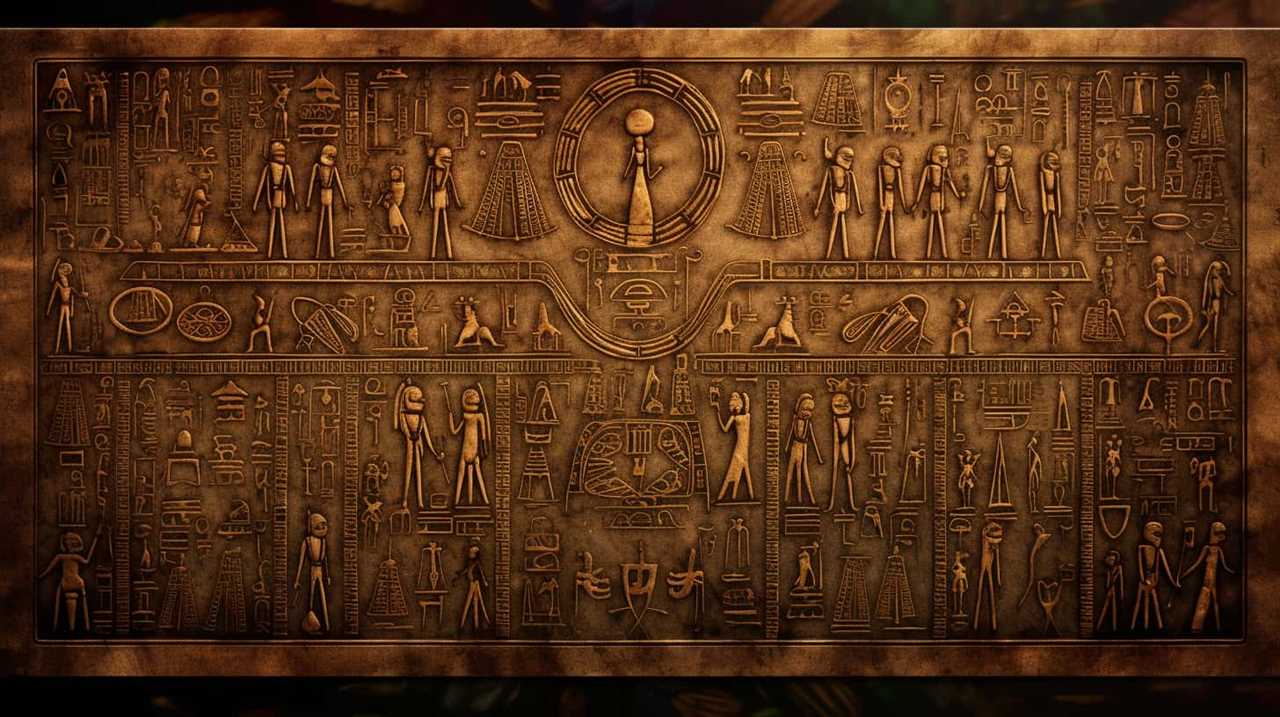What were the teachings of Socrates communicated through his dialogues and quotes?
Well, it just so happens that Socrates, the great philosopher of ancient Greece, taught us profound lessons through his thought-provoking dialogues and insightful quotes. In our quest for mastery, we explore the wisdom imparted by this influential figure.
Socrates emphasized the importance of questioning and seeking wisdom through engaging in dialogue. He employed the Socratic Method, a powerful tool of inquiry, to stimulate critical thinking and self-reflection.
Through his teachings, we delve into the concept of virtue, the pursuit of knowledge, and the exploration of self-understanding. Socrates also warned against the dangers of overconfidence in knowledge, encouraging intellectual humility.
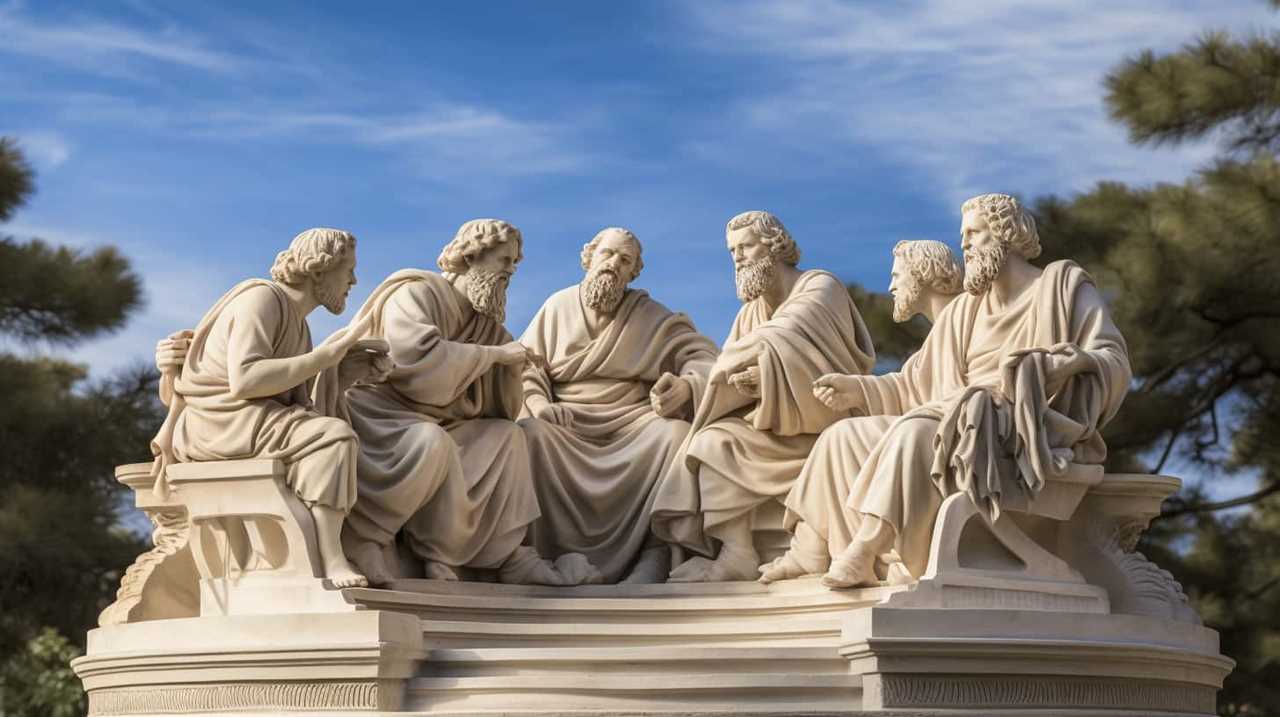
As we embark on this journey, we uncover the legacy of Socrates’ teachings, which continue to shape and inspire seekers of wisdom to this day.
Key Takeaways
- Socrates emphasized the importance of questioning and dialogue in deepening understanding and uncovering new knowledge.
- The Socratic Method of Inquiry, which involves questioning, dialogue, and critical thinking, is a powerful tool for seeking truth and engaging in intellectual humility.
- Socrates believed that virtue ethics is essential for moral excellence and that true happiness can only be achieved through the pursuit of virtue.
- Socrates’ teachings on questioning, dialogue, and critical thinking continue to shape and inspire seekers of wisdom, and the Socratic Method is still used in education and intellectual discourse today.
The Importance of Questioning
We frequently emphasize the significance of questioning in our teaching and learning philosophy. The importance of curiosity and the power of questioning can’t be overstated. It’s through questioning that we’re able to deepen our understanding, challenge assumptions, and uncover new knowledge. Curiosity is the driving force behind all great discoveries and advancements in human history. It’s what compels us to explore, to seek answers, and to push the boundaries of what’s known. When we question, we engage with the world around us and actively participate in the process of learning.
Questioning allows us to critically analyze information, evaluate different perspectives, and develop our own ideas. It encourages us to think deeply, to challenge existing beliefs, and to continually seek new insights. By asking questions, we become active learners, taking ownership of our education and driving our intellectual growth.
Transitioning into the subsequent section about ‘seeking wisdom through dialogue’, questioning is also the gateway to meaningful dialogue. It’s through questioning that we engage in thoughtful conversations, exchanging ideas, and seeking wisdom from others. The Socratic method, as exemplified by Socrates himself, is based on the power of questioning as a means to stimulate critical thinking and promote self-discovery. By asking probing questions, we open ourselves up to new perspectives and expand our understanding of the world.

Seeking Wisdom Through Dialogue
Transitioning from the importance of questioning, we delve into the realm of seeking wisdom through dialogue, utilizing the power of questioning to engage in meaningful conversations and expand our understanding. Through Socratic inquiry, we embark on a journey of self understanding and the pursuit of knowledge. By engaging in dialogue, we’ve the opportunity to examine virtue, challenge conventional wisdom, and foster critical thinking and self reflection.
- Wisdom through dialogue: Socrates believed that genuine wisdom can only be achieved through engaging in thoughtful conversations with others. Through dialogue, we’re able to share ideas, challenge assumptions, and gain new perspectives, ultimately expanding our understanding of the world.
- Engaging intellectual humility: The art of questioning and engaging in dialogue requires intellectual humility. It necessitates acknowledging our own limitations and being open to the possibility of being wrong. By embracing intellectual humility, we create a space for growth and learning.
- The legacy of Socrates’ teachings: Socrates’ emphasis on the importance of dialogue and critical thinking has left a lasting impact on philosophy and education. His teachings continue to inspire individuals to question, reflect, and seek wisdom through dialogue, reminding us of the transformative power of meaningful conversations.
The Socratic Method of Inquiry
As we explore the teachings of Socrates, it’s essential to understand the significance of the Socratic Method of Inquiry. This method, developed by Socrates himself, is a powerful tool for engaging in intellectual humility and seeking truth. The Socratic Method involves a process of questioning and dialogue, where the goal isn’t to prove one’s own point, but rather to uncover deeper insights and understanding through critical thinking.
One of the key aspects of the Socratic Method’s effectiveness lies in its ability to challenge preconceived notions and beliefs. By encouraging individuals to examine their own thoughts and ideas, it promotes self-reflection and the recognition of one’s own limitations. This process of questioning and self-examination fosters intellectual humility, as it requires individuals to acknowledge their own fallibility and be open to the possibility of being wrong.
Furthermore, the Socratic Method promotes critical thinking and logical reasoning. By engaging in thoughtful dialogue and questioning, individuals are encouraged to analyze arguments, evaluate evidence, and consider alternative perspectives. This process of inquiry not only helps in the pursuit of truth, but also in the development of analytical skills and the ability to think critically.
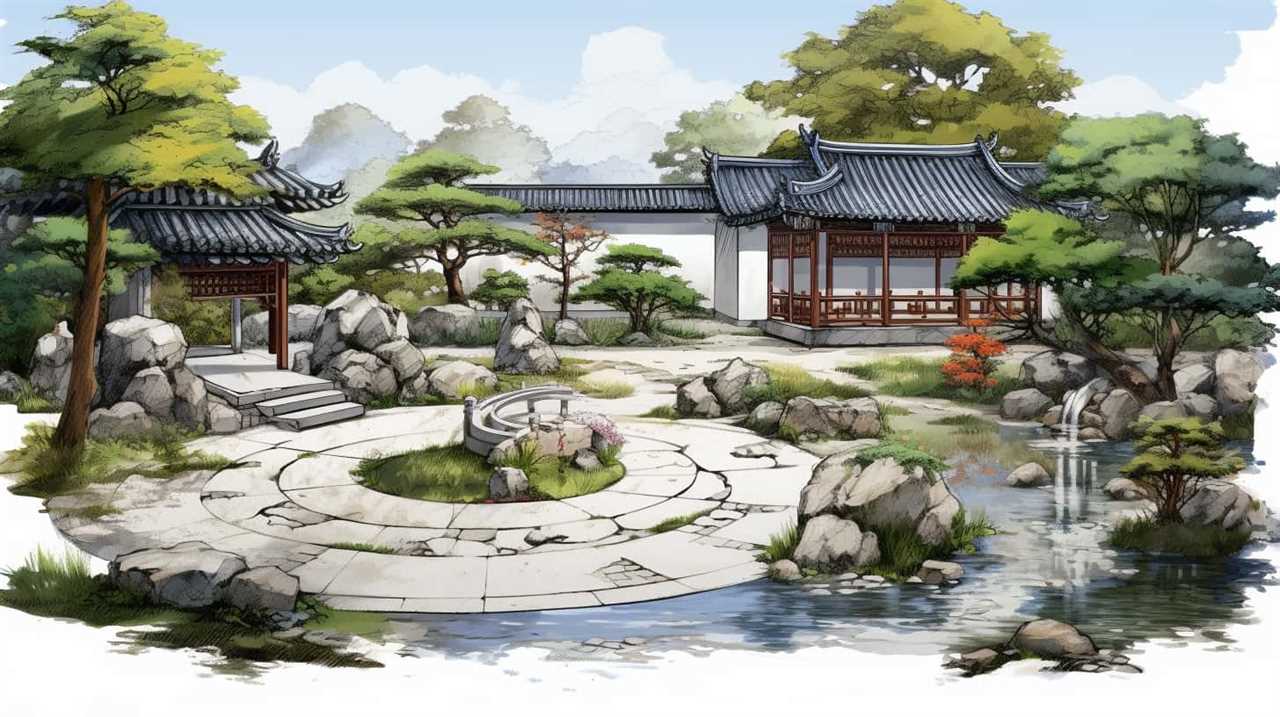
In conclusion, the Socratic Method of Inquiry is a powerful tool for engaging in intellectual humility and seeking truth. By challenging preconceived notions and promoting critical thinking, it encourages individuals to examine their own beliefs and be open to new ideas. Through this process, we can begin to uncover deeper insights and understanding.
Now, let’s delve into examining the concept of virtue.
Examining the Concept of Virtue
To explore the concept of virtue, let’s delve into Socrates’ teachings through dialogues and quotes. Socrates believed that virtue ethics is the key to moral excellence. He argued that true happiness could only be achieved through the pursuit of virtue, as it’s the foundation of a well-lived life.
Here are three key ideas that Socrates put forth regarding virtue:

- Virtue as knowledge: Socrates believed that virtue isn’t innate, but rather can be learned and taught. He saw virtue as a form of knowledge that can be acquired through self-examination and critical thinking. According to Socrates, true understanding of virtue leads to moral excellence.
- Virtue as the ultimate aim: Socrates argued that the pursuit of virtue should be the ultimate goal in life. He believed that by cultivating virtuous qualities such as wisdom, courage, and justice, individuals can achieve true fulfillment and live a meaningful existence.
- Virtue as a shared responsibility: Socrates emphasized that virtue isn’t just an individual pursuit, but a collective one. He believed that society as a whole should strive for moral excellence and that everyone has a role to play in fostering virtuous behavior.
The Pursuit of Knowledge and Self-Understanding
When considering the pursuit of knowledge and self-understanding, it’s imperative to explore the effectiveness of Socratic Method and the role of self-reflection.
Socrates employed a unique questioning technique that encouraged individuals to critically examine their beliefs and assumptions, leading to a deeper understanding of oneself and the world. By engaging in thoughtful dialogue and introspection, one can uncover hidden biases, challenge preconceived notions, and unlock new avenues of knowledge and self-discovery.
The Socratic Method serves as a powerful tool for intellectual growth and personal transformation, inviting us to question, reflect, and continuously seek truth and self-understanding.
Socratic Method’s Effectiveness
Through the Socratic Method, we engage in critical questioning and active dialogue to collectively pursue knowledge and deepen our understanding of ourselves. The effectiveness of questioning lies in its ability to challenge our assumptions and stimulate critical thinking. By questioning our own beliefs and opinions, we create an opportunity for intellectual growth and self-reflection.
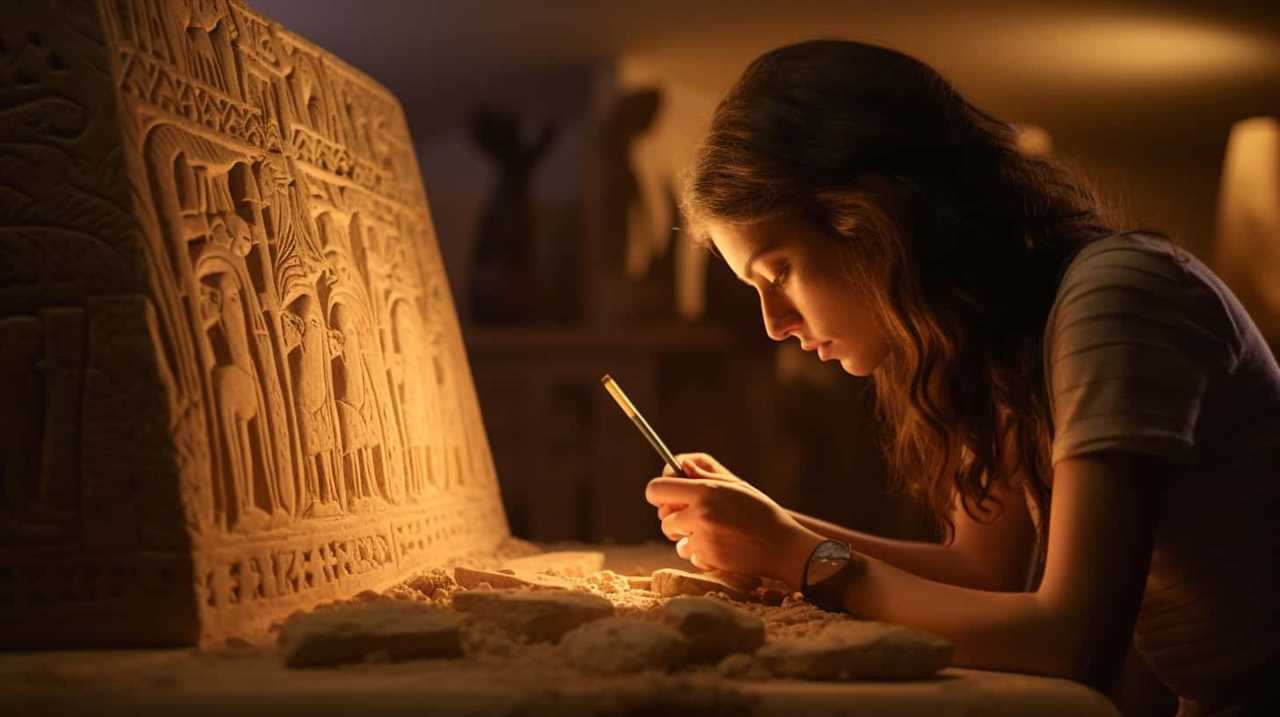
The Socratic Method encourages us to explore different perspectives, weigh the evidence, and challenge our own biases. It pushes us to think deeply, analyze our thoughts and beliefs, and seek truth. This method promotes self-awareness and self-understanding by encouraging us to examine our motivations, values, and biases. It fosters intellectual curiosity and cultivates a lifelong commitment to learning and personal growth.
Through the Socratic Method, we become active participants in our own intellectual development, constantly seeking knowledge and striving for self-improvement.
- The Socratic Method highlights the importance of asking thought-provoking questions.
- It encourages critical thinking by challenging assumptions and biases.
- The method promotes self-reflection and self-awareness for personal growth.
Role of Self-Reflection?
How does self-reflection contribute to our pursuit of knowledge and self-understanding?
The role of introspection and self-examination in self-improvement can’t be overstated. By engaging in deep self-reflection, we’re able to gain a clearer understanding of our thoughts, emotions, and actions. Through introspection, we can identify our strengths and weaknesses, allowing us to focus on areas that require improvement. This process of self-examination is essential for personal growth and development.

The Socratic method plays a crucial role in fostering self-reflection. By engaging in dialogue and questioning, Socrates encouraged his students to critically examine their beliefs and assumptions. This method pushes us to question our own thoughts and ideas, leading to a deeper understanding of ourselves and the world around us.
Through self-reflection and the Socratic method, we can uncover hidden biases, challenge our preconceptions, and ultimately cultivate a more nuanced understanding of ourselves and the pursuit of knowledge.
Challenging Assumptions and Beliefs
Socrates taught us to question our assumptions and beliefs through engaging dialogues and thought-provoking quotes. By challenging our deeply held beliefs and assumptions, Socrates encouraged us to critically examine our own thinking and open ourselves up to new perspectives. This process of questioning allows us to uncover hidden biases, expand our understanding, and ultimately arrive at a more informed and nuanced understanding of the world around us.
Here are three key ways in which Socrates’ teachings can help us challenge our assumptions and beliefs:
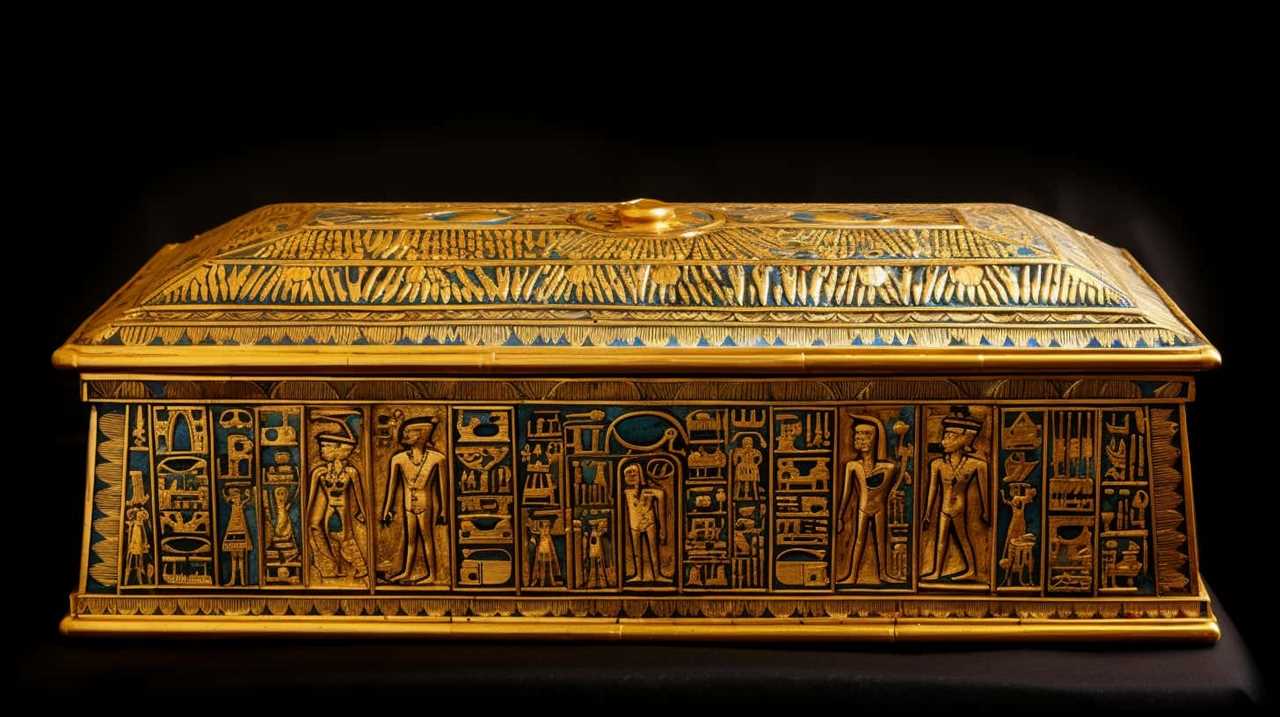
- Encouraging intellectual curiosity: Socrates believed in the power of curiosity to drive learning and growth. By actively seeking out new knowledge and questioning our own assumptions, we can break free from the limitations of our beliefs and open ourselves up to new ideas and possibilities.
- Promoting self-reflection: Through his dialogues, Socrates demonstrated the importance of self-reflection in uncovering the unconscious biases and assumptions that shape our beliefs. By engaging in regular self-reflection, we can become more aware of the influences that inform our thinking and make more deliberate choices about what we believe.
- Fostering open-mindedness: Socrates emphasized the value of open-mindedness and humility in the pursuit of knowledge. By recognizing that our beliefs aren’t infallible, we can approach new ideas and perspectives with curiosity and a willingness to challenge our own assumptions. This openness allows us to grow intellectually and deepen our understanding of the world.
Critiquing the Delphic Oracle’s Wisdom
When examining the Delphic Oracle’s wisdom, it becomes apparent that there are significant questions regarding its reliability and accuracy. Socrates, known for his relentless pursuit of truth, didn’t hesitate to challenge the conventional wisdom propagated by the Oracle.
Oracle’s Questionable Wisdom
The Delphic Oracle’s wisdom is often called into question due to its questionable accuracy and reliability. When it comes to questioning authority, Socratic irony plays a significant role. Socrates himself was known for his skepticism towards the Delphic Oracle’s pronouncements. Here are three reasons why the Oracle’s wisdom is viewed skeptically:
- Ambiguity: The Oracle’s responses often lacked clarity, leaving room for interpretation and misinterpretation.
- Inconsistency: The Oracle’s predictions were sometimes contradictory or didn’t align with historical events, raising doubts about its reliability.
- Subjectivity: The Oracle’s prophecies were influenced by the personal biases and beliefs of the priestess delivering them, making them susceptible to human error.
These shortcomings raise valid concerns about the Oracle’s wisdom and its ability to provide reliable guidance. However, Socrates took it upon himself to challenge conventional wisdom and seek true knowledge through critical thinking and logical reasoning.
Socrates Challenging Conventional Wisdom
Through our dialogues and quotes, Socrates challenged conventional wisdom by critiquing the wisdom of the Delphic Oracle. Socrates’ unconventional approach involved questioning societal norms and challenging established beliefs. He believed that true wisdom came from questioning and examining one’s own beliefs, rather than blindly accepting the opinions of others.

The Delphic Oracle was considered a source of divine wisdom and guidance, but Socrates questioned its infallibility. He believed that true wisdom could only be attained through critical thinking and self-reflection. By challenging the wisdom of the Oracle, Socrates encouraged individuals to think for themselves and not simply accept the beliefs and norms imposed by society.
This unconventional approach sparked intellectual curiosity and paved the way for a more enlightened and independent way of thinking.
Engaging in Intellectual Humility
In our pursuit of knowledge, we can cultivate intellectual humility by engaging in thoughtful dialogue and embracing a willingness to learn and grow. Intellectual humility is the recognition of our own limitations and the openness to consider new ideas and perspectives. It’s through this practice that we can foster intellectual growth and expand our understanding of the world around us.
To engage in intellectual humility, we can:

- Listen actively: By actively listening to others, we can truly hear their ideas and opinions without immediately dismissing or judging them. This allows us to be open to new insights and challenges our preconceived notions.
- Embrace curiosity: A curious mind is a fertile ground for intellectual growth. By asking questions and seeking answers, we can continuously expand our knowledge and challenge our own assumptions.
- Reflect on our own beliefs: Intellectual humility requires self-reflection and the willingness to acknowledge when we may be wrong. It’s important to regularly examine our own beliefs and biases, and be open to changing our perspectives based on new information.
Encouraging Critical Thinking and Self-Reflection
When it comes to encouraging critical thinking and self-reflection, Socrates’ dialogues and quotes provide a valuable framework.
The Socratic method, for instance, promotes active engagement and challenges individuals to think deeply and critically about their beliefs and assumptions. By constantly questioning and probing, Socrates fosters intellectual curiosity, pushing individuals to seek knowledge and understanding.
This approach not only encourages critical thinking but also cultivates self-reflection, as individuals are prompted to examine their own thoughts and perspectives in light of new information and insights.
Socratic Method Benefits
By encouraging critical thinking and self-reflection, the Socratic method benefits us by fostering a deeper understanding of complex ideas and promoting personal growth.
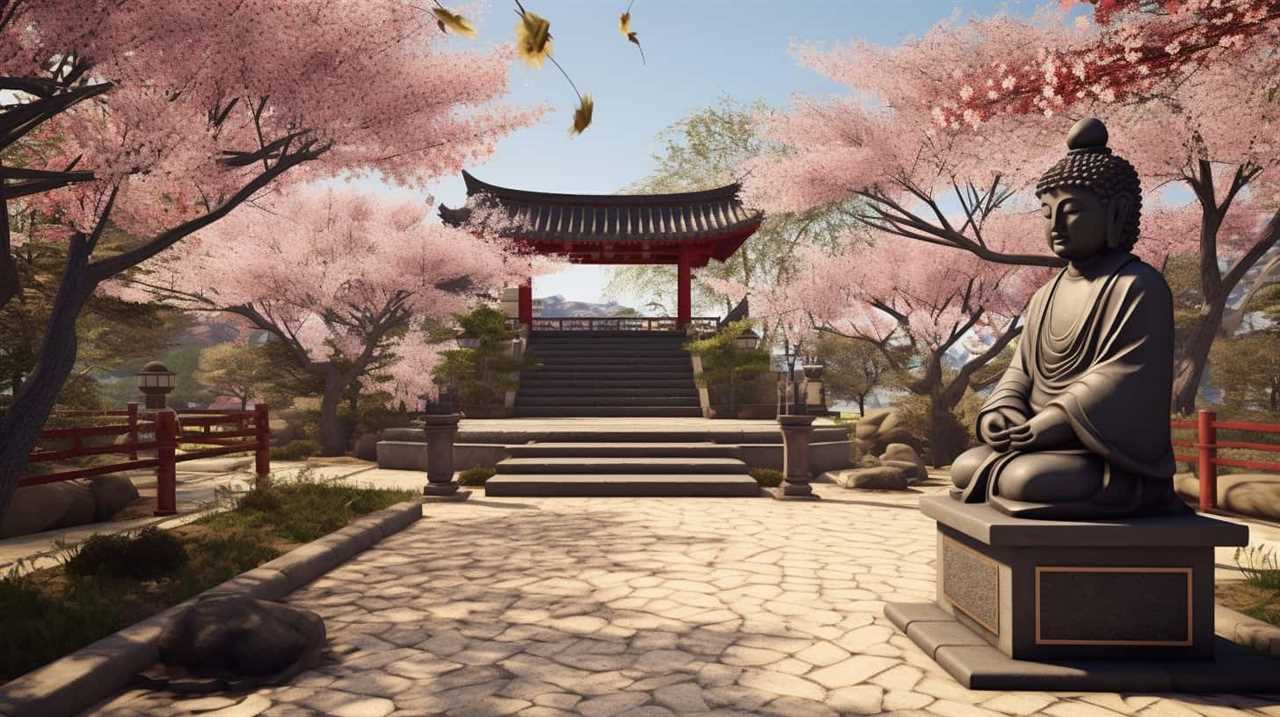
Through inquiry and open-ended questions, the Socratic method enables us to explore different perspectives and challenge our assumptions. This process of intellectual inquiry allows us to develop a more nuanced understanding of the subject matter, helping us to uncover hidden biases and gaps in our knowledge.
Furthermore, the Socratic method teaches us to think critically and independently, empowering us to analyze arguments and evaluate evidence. By engaging in this rigorous form of dialogue, we cultivate our intellectual curiosity, leading to a lifelong pursuit of knowledge and continuous self-improvement.
Through the Socratic method, we not only gain a deeper understanding of complex ideas but also develop the skills necessary for intellectual growth and curiosity.
Developing Intellectual Curiosity
Through the Socratic method, we cultivate our intellectual curiosity, fostering critical thinking and self-reflection. Intellectual growth is a continuous process, and Socrates recognized the importance of nurturing curiosity to fuel this growth. By engaging in thoughtful questioning and discussion, we’re encouraged to explore ideas, challenge assumptions, and seek deeper understanding.

The Socratic method prompts us to critically analyze our own beliefs and perspectives, encouraging us to question their validity and consider alternative viewpoints. This process of self-reflection allows us to expand our knowledge and develop a more nuanced understanding of the world around us.
Fostering curiosity through the Socratic method not only enhances our cognitive abilities but also instills in us a desire for lifelong learning. As we delve deeper into our intellectual pursuits, we become more aware of the limitations of our own knowledge, which sets the stage for the subsequent section on questioning assumptions and beliefs.
Questioning Assumptions and Beliefs
Through the Socratic method, we deepen our critical thinking and self-reflection by questioning assumptions and beliefs. This intellectual curiosity drives us to explore the foundations of our knowledge and challenge long-held beliefs. By engaging in thoughtful dialogue and posing probing questions, we develop a more nuanced understanding of the world around us. This process encourages us to critically examine our own assumptions, biases, and preconceived notions. It pushes us to seek evidence and logical reasoning to support our beliefs, ensuring that our convictions are based on sound judgment rather than blind faith.
Questioning assumptions and beliefs is a fundamental aspect of critical thinking, as it opens the door to new perspectives and fosters intellectual growth. It challenges us to confront uncomfortable truths and invites us to constantly reevaluate and refine our understanding of the world.

- Uncover hidden biases and assumptions
- Challenge the status quo
- Foster intellectual growth and development
The Dangers of Overconfidence in Knowledge
Socrates warned us about the perils of being too confident in our knowledge. He believed that unwarranted confidence can lead to intellectual stagnation and arrogance. Socrates understood the limitations of knowledge and recognized that true wisdom comes from acknowledging our own ignorance. In his dialogues, he often portrayed himself as ignorant, constantly questioning others in order to expose the flaws in their thinking. By doing so, he encouraged others to recognize the gaps in their own understanding.
The dangers of unwarranted confidence are significant. When we become overly confident in our knowledge, we close ourselves off to new ideas and perspectives. We become resistant to questioning our own beliefs and assumptions, hindering our intellectual growth. This can lead to a false sense of superiority and a lack of humility, which can be detrimental to our personal development.
Socrates’ teachings serve as a reminder that knowledge is an ongoing process of questioning and inquiry. It’s through this process that we can uncover new insights and expand our understanding. Socrates’ legacy lies in his ability to challenge societal norms and encourage critical thinking. His teachings remind us to approach knowledge with humility and to continuously question our own beliefs. Only by doing so can we truly grow and expand our intellectual horizons.
The Legacy of Socrates’ Teachings
Continuing our exploration of Socrates’ teachings, it’s important to recognize the lasting impact his ideas have had on our understanding of knowledge and critical thinking. Socrates’ legacy of teachings and his emphasis on the power of questioning have shaped the way we approach learning and intellectual inquiry.

The impact of Socratic teachings can be seen in various aspects of our lives, from education to problem-solving. Here are three notable ways in which Socrates’ ideas have left a lasting legacy:
- Fostering intellectual curiosity: Socrates believed in the pursuit of knowledge through questioning. His method of inquiry encouraged individuals to critically examine their beliefs and assumptions, sparking a sense of curiosity that drives us to seek deeper understanding.
- Challenging the status quo: Socrates’ relentless questioning of traditional beliefs and societal norms challenged the prevailing wisdom of his time. His teachings inspire us to question authority, think independently, and challenge established systems, fostering a culture of intellectual courage and innovation.
- Cultivating critical thinking skills: Socrates’ dialectic method, as showcased in his dialogues, taught us the importance of logical reasoning and argumentation. By engaging in thoughtful discussions and examining different perspectives, we develop the ability to think critically, analyze information, and make well-informed decisions.
Socrates’ legacy continues to shape our intellectual landscape, reminding us of the transformative power of questioning and the pursuit of knowledge. His teachings serve as a timeless reminder that true wisdom lies in the constant pursuit of understanding and the willingness to challenge our own beliefs.
Frequently Asked Questions
What Is the Historical Context in Which Socrates Lived and Taught?
In examining the historical context in which Socrates lived and taught, we gain insight into the foundation of his teachings. By understanding the societal and philosophical landscape, we can better grasp the significance of his dialogues and quotes.
How Did Socrates’ Teachings Influence Future Philosophers and Thinkers?
Socrates’ teachings had a profound influence on education, shaping the way we think about the pursuit of knowledge. Furthermore, his emphasis on questioning and critical thinking had a lasting impact on moral philosophy, challenging conventional beliefs and encouraging ethical introspection.
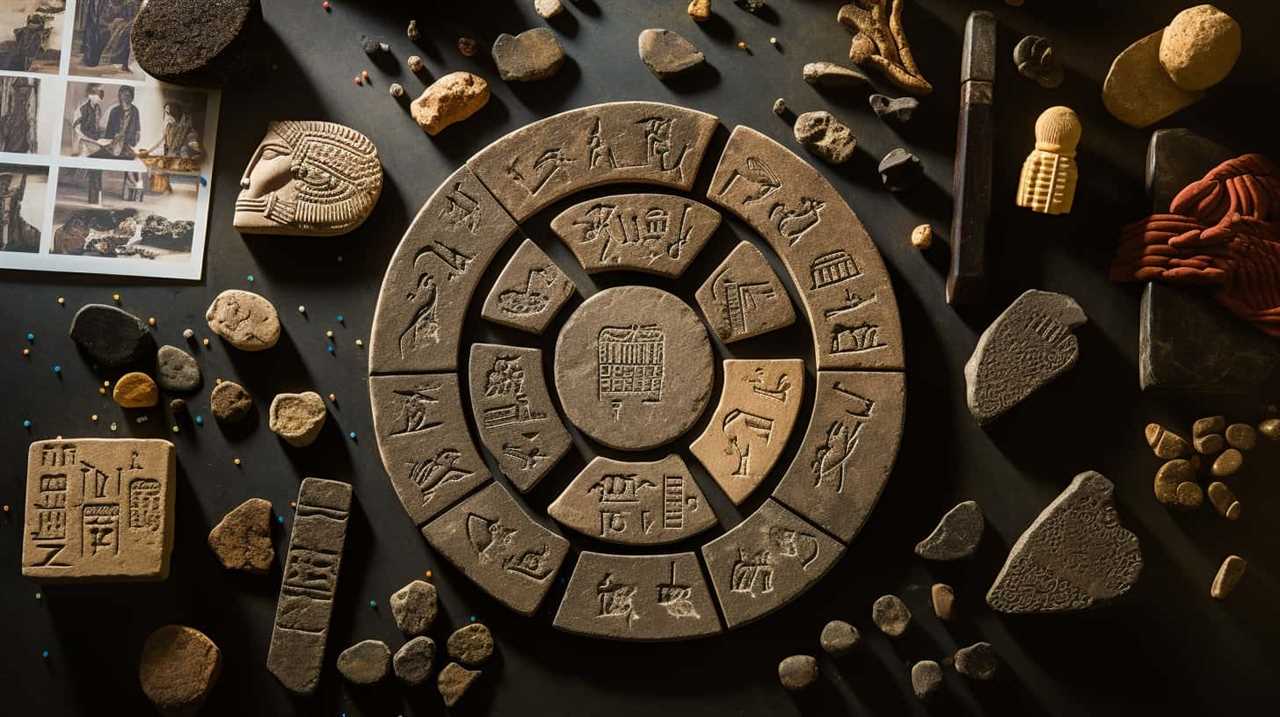
Were Socrates’ Teachings Universally Accepted During His Time, or Did He Face Opposition?
Socrates’ teachings were not universally accepted during his time; he faced opposition. However, his ideas had a profound impact on society, influencing future philosophers and thinkers. Through his dialogues and quotes, he challenged conventional wisdom, encouraging critical thinking and self-reflection.
Can You Provide Examples of Specific Dialogues or Quotes by Socrates That Demonstrate His Teachings?
Through Socratic dialogues and quotes, Socrates taught us using his unique method of questioning, the Socratic Method. By examining our beliefs and challenging them, he encouraged critical thinking and self-reflection, fostering intellectual growth and wisdom.
How Did Socrates’ Teachings Differ From Other Philosophical Schools of Thought in Ancient Greece?
Socrates’ teachings differed from other philosophical schools of thought in ancient Greece through his use of the Socratic Method. This unique philosophical methodology focused on critical thinking, questioning assumptions, and seeking truth through dialogue rather than asserting dogmatic beliefs.
How Can I Use Socrates’ Dialogues and Quotes to Improve My Understanding of His Teachings?
To grasp Socrates’ teachings through dialogues, start by delving into his works like “The Republic” and “Phaedo”. Analyze his exchanges with interlocutors like Plato and Xenophon to gain deep insights. Use his quotes, like “The only true wisdom is in knowing you know nothing,” to ponder and expand your understanding.
Conclusion
In conclusion, Socrates, through his thought-provoking dialogues and insightful quotes, taught us the invaluable art of questioning. Like a masterful artist wielding his brush, he painted a picture of wisdom and self-discovery through engaging in dialogue and embracing intellectual humility.

His legacy serves as a constant reminder of the dangers of overconfidence in knowledge and the importance of critical thinking and self-reflection. Socrates, the timeless philosopher, continues to inspire us to seek knowledge and understanding, forever challenging our minds to explore new depths.
Fritz is a writer whose humor and wit infuse life into words. His creativity, combined with a profound love for the English language, makes him a unique voice at afterQuotes. Fritz’s engagement with books, culture, and social media adds depth to his contributions, making them resonate with our diverse audience.




